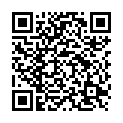|
|
|
| Module code: BAIBA-240 |
|
|
6V (6 hours per week) |
|
6 |
| Semester: 2 |
| Mandatory course: yes |
Language of instruction:
German |
Assessment:
Written exam
[updated 30.07.2021]
|
BAIBA-240 (P420-0498) International Business, Bachelor, ASPO 01.10.2008
, semester 2, mandatory course
|
90 class hours (= 67.5 clock hours) over a 15-week period.
The total student study time is 180 hours (equivalent to 6 ECTS credits).
There are therefore 112.5 hours available for class preparation and follow-up work and exam preparation.
|
Recommended prerequisites (modules):
BAIBA-140 Mathematics
[updated 15.02.2011]
|
Recommended as prerequisite for:
BAIBA-520 International Marketing
[updated 14.02.2011]
|
Module coordinator:
Prof. Dr. Teresa Melo |
Lecturer:
Lehrbeauftragte
[updated 15.02.2011]
|
Learning outcomes:
- After successfully completing this module, students will be familiar with and be able to apply terms and methods from the field of descriptive statistics.
- They will be able to examine statistical data for correlations.
- Students will have mastered basic concepts and contexts of probability theory.
- They will understand and be able to apply basic distribution models.
- They will be familiar with the most important methods and instruments used in market research.
- Students will be able to critically examine advertising campaigns, packaging design, new product developments, etc.
- They will be able to communicate the benefits of market research results to companies.
[updated 30.07.2021]
|
Module content:
Statistics
Descriptive statistics:
- Classification of features
- Frequency tables for classified and non-classified data
- Measures of location, dispersion and concentration
- Connection of statistical characteristics: contingency table, correlation, rank correlation
- Linear regression
Probability calculation:
- Basic principles of set theory, elementary set operations
- Probability terms: Laplace distribution, statistical
probability, Kolmogorov’s probability theory
- Elementary computation rules, total probability theorem, Bayesian theorem
- Random variables and distribution models (including binomial and normal distribution)
Market Research
- Insight into quantitative and qualitative market research
- Designin the research process and selecting methods for it
- Survey techniques
- Designing the questionnaire
- Sampling
- Evaluation methods
• Representing and interpreting market research results
[updated 30.07.2021]
|
Teaching methods/Media:
Lecture and tutorial (students solve tasks independently with subsequent discussion of the solutions), lecture script and exercises available
[updated 30.07.2021]
|
Recommended or required reading:
- Fahrmeir/Künstler/Pigeot/Tutz: Statistik: Der Weg zur Datenanalyse, 6. überarbeitete Auflage, Springer-Verlag, Berlin, Heidelberg, 2007
- Schira: Statistische Methoden der VWL und BWL: Theorie und Praxis, 3., aktualisierte Auflage, Pearson Studium, 2009
- Mosler/Schmid: Beschreibende Statistik und Wirtschaftsstatistik, 3. Auflage, Springer-Verlag, Berlin, Heidelberg, 2006
- Mosler/Schmid: Wahrscheinlichkeitsrechnung und schließende Statistik, 2. Auflage, Springer-Verlag, Berlin, Heidelberg, 2006
- Bamberg/Baur/Krapp: Statistik, 14. Auflage, Oldenbourg, 2008
- Toutenburg/Heumann: Deskriptive Statistik: Eine Einführung in Methoden und Anwendungen mit R und SPSS, 6. Auflage, Springer-Verlag, Berlin, Heidelberg, 2008
[updated 30.07.2021]
|


